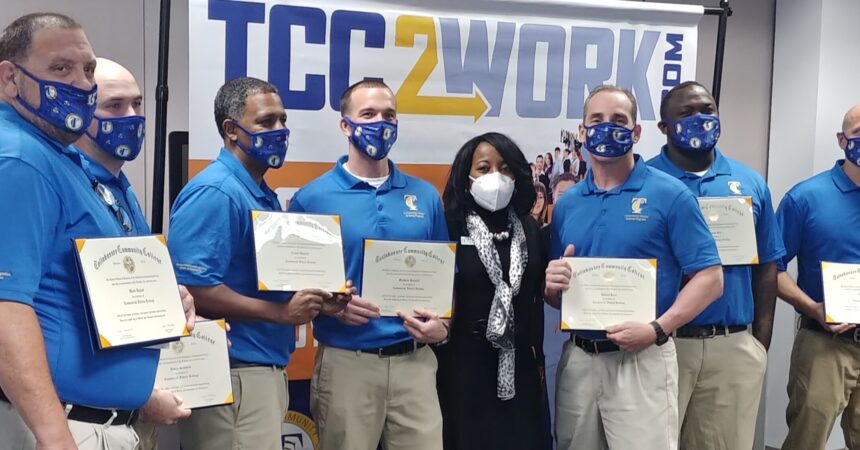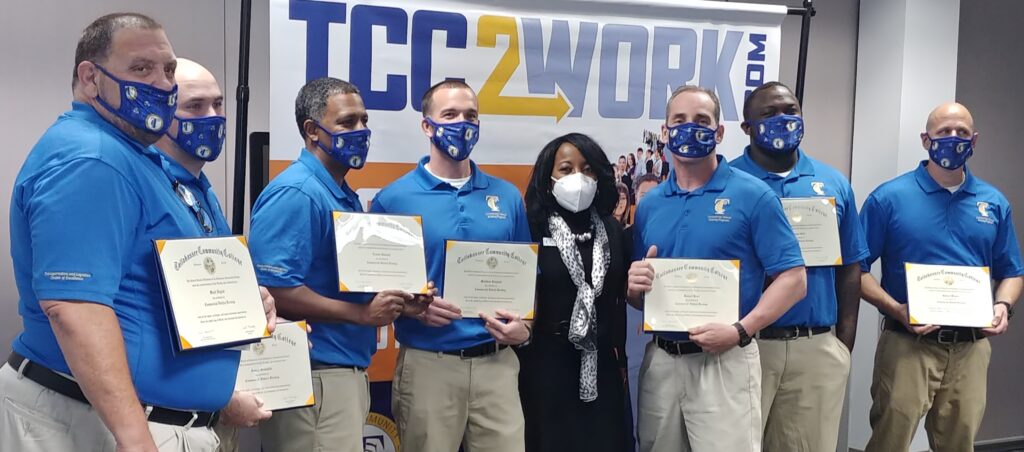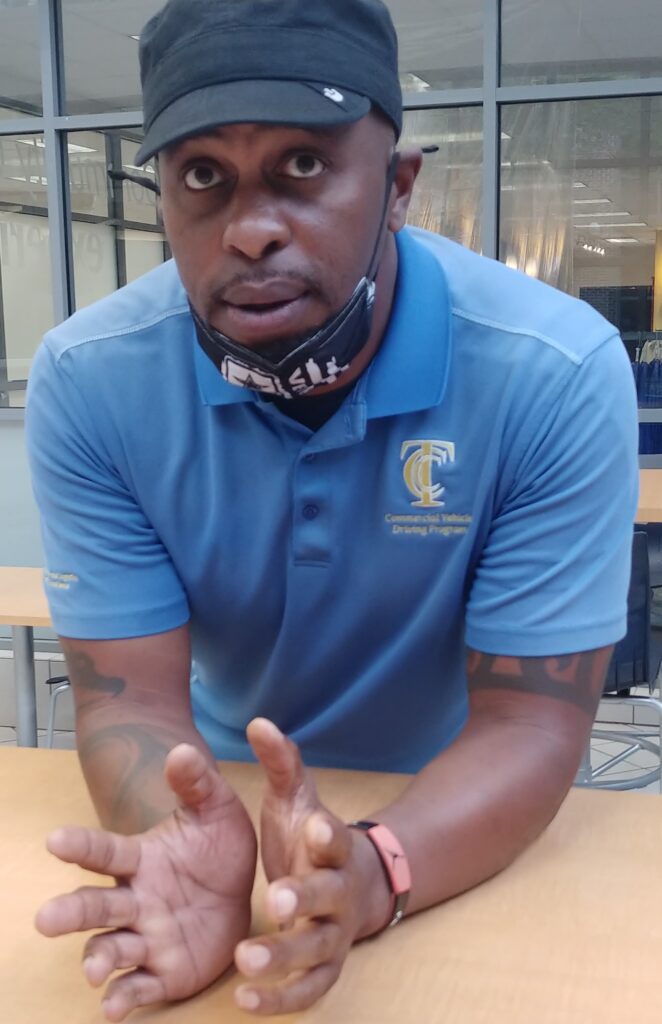
Commercial truck driving program at TCC puts inmates on road to new careers

Photo by St. Clair Murraine

Photo by St. Clair Murraine
By St. Clair Murraine
Outlook staff writer
Choking back tears, Mark Hagust talked about a career change that he and six other inmates are looking forward to at the end of their incarceration.
When Hagust and the others that he’s spent two months with at Tallahassee Community Release Center complete their sentences, they hope to be on a road that takes them far from prison. The time they spent together was as students in the Tallahassee Community College commercial driving program.
The seven men completed the first step to becoming commercial truck driving last Thursday when they received vocational certificates during ceremonies held inside the TCC student union building. The program is a joint effort between TCC and the Florida Department of Corrections to train inmates for a career that they could begin the day that they’re released.
“They afford you every opportunity to fix yourself and if you want to fix yourself you can, but you have to want to do it,” said Hagust. “You can change yourself to be the person that you were raised to be.”
Hagust, who stayed in Tallahassee while taking the class at TCC, said he had to return to Baker Correctional Institute in Sanderson, Fla., before starting a year-long work release in Jacksonville. During that time, he’s expecting to be making a livelihood as a commercial truck driver.
The plan is the same for the others who were in the program with Hagust. He called the opportunity that awaits him life-changing.
“When you get out of prison, you’re limited to what you can do because you’re labeled a felon,” said Hagust, who is serving five years for misusing a company credit card. “But this gives us an opportunity to just flourish in what we plan on doing in life.”
Certifications were presented to the inmates by TCC president Jim Murdaugh and FDC Secretary Mark Inch.
“The seven of you have set yourself on a path and now you have the skill set to move forward,” Inch told the inmates.
The partnership on the commercial vehicle driving program between TCC and Florida Department of Corrections is a first in the state, according to TCC. Twenty-four offenders who are approaching a release date have participated in the program over the last six months and there is an agreement to continue training inmates at least through the next year, according to the college.
When the wheels were set in motion to start the program, there was no second-guessing, said Kimberly Moore, Vice President for Workforce Innovation at TCC.
“We knew that if we could pair individuals that were motivated and share with them this vision of becoming employable on day one, not waiting until you’re out to make that transition but literally switching the dial while you’re in, that it would be powerful,” Moore said. “It sends a powerful message about how we are looking at reform.”
The eight weeks that the inmates spent in training were intense, said James Taylor, an adjunct instructor who runs the commercial driving classes. They were in class from 8 a.m. to 5 p.m. and all of the training emphasizes Department of Transportation regulations, he said.
Part of the training includes learning how to maneuver the head tractor attached to a 53-foot trailer in small towns and large cities. Such training is absolutely essential, Taylor said, because “that truck is big and it’s very dangerous.”
Taylor knows that well. He served 22 years in the Army, most of that time driving delivery rigs as a transport operator.
Another requirement for completing the class is to learn how to drive in city, rural and highway conditions, while completing at least 1,000 miles behind the wheel. Initial training takes place at a pad adjacent to the TCC campus, then they take to the road in Midway and Wakulla.
Understanding how to complete a mandatory vehicle inspection is also part of the training, Taylor said. He added that at the end of the course each trainee has to have “basic knowledge of what to do and how to properly troubleshoot your vehicle.”
Even before the men left the ceremony to change out of their dark blue robes, potential employers were sizing them up. Ted Parker, director of outreach and diversity with Ajax Building Corporation, hoped to find a driver to fill a vacancy with the company.
“We absolutely need one,” he said. “I’m please with the program. I’m happy to have this program. We need it.”







